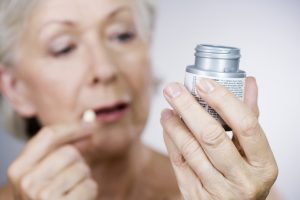
Lead researcher Peter Rothwell said, “Our findings confirm the effectiveness of urgent treatment after TIA and minor stroke, and show that aspirin is the most important component. Immediate treatment with aspirin can substantially reduce the risk and severity of early recurrent stroke. This finding has implications for doctors, who should give aspirin immediately if a TIA or minor stroke is suspected, rather than waiting for specialist assessment and investigations.”
“Encouraging people to take aspirin if they think they may have had a TIA or minor stroke — experiencing sudden-onset unfamiliar neurological symptoms — could help to address this situation, particularly if urgent medical help is unavailable,” Rothwell concluded.
Being aware of a mini-stroke is equally important as being aware of a major one, as both can have serious health implications. The signs of a mini-stroke are numbness and weakness, usually on one side of the body, difficulty speaking or understanding speech, dizziness or loss of balance, and double vision or difficulty seeing. Signs and symptoms of a mini-stroke may be only last for a short while, but can come and go within a 24-hour time period.
Also, read Bel Marra Health’s article on Stroke signs and symptoms to recognize.